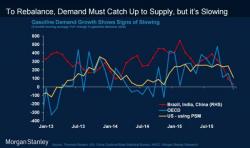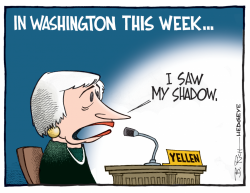Why Tomorrow's "Secret" Meeting Between Russian, Saudi Oil Ministers Will Not Lead To A Cut In Production

For the past two weeks recurring flashing red headlines of an agreement, or at least a meeting, between Russia and Saudi Arabia - the world's two largest oil producers - have led to aggressive short-covering rallies in oil on just as recurring hopes that the Saudi strategy of flooding the market with excess supply (by its own calculations as much as 3 million barrels daily) adopted during the 2014 Thanksgiving Day OPEC meeting, will come to an end.

